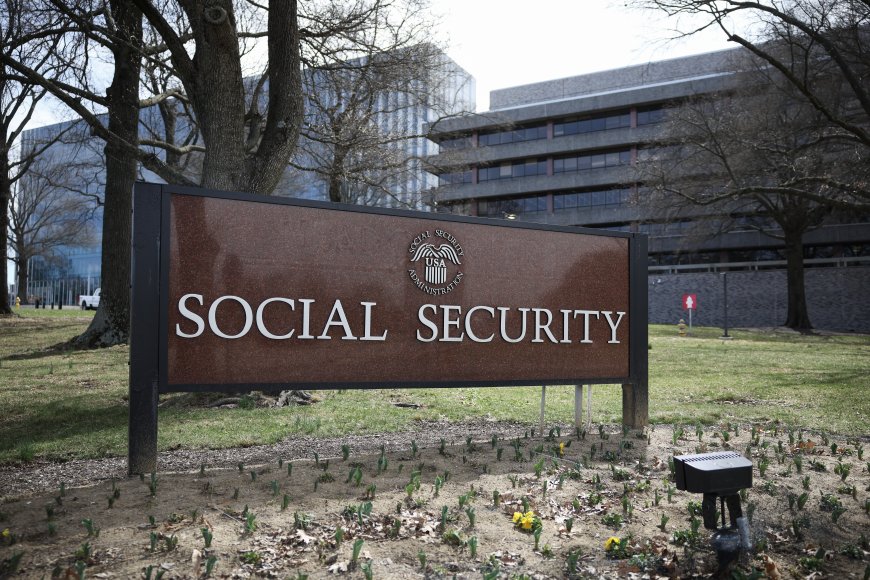A Whistleblower Says Social Security Data Was Copied to a Private Cloud for DOGE Team Access—What We Know, What’s at Risk, and What Could Change
A whistleblower claims Social Security data for 300 million Americans was copied to a private cloud for DOGE team access. Lawmakers demand urgent investigation.

On Tuesday, August 26, 2025, a protected disclosure from the Social Security Administration’s chief data officer alleged that a copy of the SSA’s core identity database—containing files for hundreds of millions of Americans—was uploaded to a privately controlled cloud environment to facilitate access by personnel tied to the Department of Government Efficiency (DOGE). The SSA has said it is not aware of any actual compromise of that environment. Still, the allegation raised alarms across Washington and the security community because the dataset in question includes the elements criminals covet most for identity theft. AP News
The allegation, in plain English
According to the whistleblower filing, DOGE-affiliated staff working inside SSA authorized the creation of a cloud-based replica of the agency’s master identity file to expedite analytics and program “efficiency” efforts. That replica, the complaint says, sat outside normal SSA security and oversight controls, potentially allowing individuals no longer in government roles to retain access. NPR-affiliated coverage emphasized that the copy was intended to give DOGE-linked personnel continuing reach into the records, sparking concerns that safeguards required under the Privacy Act were bypassed. WBUR
What’s likely in the data copy
While SSA hasn’t detailed the mirrored fields, the agency’s NUMIDENT identity file traditionally includes full legal name, date and place of birth, parents’ names, and the Social Security number assigned—precisely the ingredients needed to open lines of credit, file fraudulent tax returns, or take over benefits. That concentration of attributes in a single location is why security practitioners consider cloud governance and access control non-negotiable for government identity systems. AP News
Timeline: How we got here
-
Morning–Afternoon, Tue., Aug. 26: Whistleblower counsel files the disclosure with federal watchdogs and congressional offices; public reporting begins summarizing the claim that a live copy of SSA data was placed in a private cloud accessible to DOGE-linked staff. SSA responds that it has no evidence of a breach and that sensitive information “remains secure.” AP News
-
Evening, Tue., Aug. 26: Public radio outlets amplify the complaint, underscoring the allegation that cloud access extended to former DOGE personnel—an arrangement critics say could flout federal records and privacy requirements. WBUR
-
Wed., Aug. 27: Lawmakers renew calls to tighten federal privacy law and to audit any external systems hosting Social Security data, citing long-standing worries about DOGE’s reach across sensitive datasets. FedScoop
Why this matters: The identity-theft math
Security pros sometimes call SSNs “skeleton keys”: pair an SSN with a legal name, birth date and address history and you have the core of a full-z identity profile. If that profile is copied at scale and governance is weak—unclear ownership, ambiguous logging, or inconsistent multifactor enforcement—provenance is lost. Even if no outside actor touches the system, continuous, unmonitored insider access increases risk: it’s harder to prove a negative, regulators struggle to validate controls, and citizens can’t meaningfully revoke or rotate their SSNs the way they would a password.
The legal and policy stakes
The complaint lands amid a broader reckoning over whether a 1974-era privacy framework can police cloud replicas, role-based access, and cross-agency data sharing in 2025. In March, Rep. Lori Trahan (D-Mass.) kicked off a process to modernize the Privacy Act, soliciting expert input on governance gaps exposed by DOGE’s data activities. Expect her office—and allied senators—to use the SSA episode as Exhibit A for independent audits, explicit cloud rules, mandatory logging, and private rights of action when agencies (or quasi-agencies) mishandle personal data. FedScoop
What to watch next
-
Forensics & logging: Can SSA and any third-party cloud host produce immutable audit trails proving who accessed the replica, when, and from where?
-
Access revocation: Has access been immediately severed for any user not currently under SSA authority? Are credentials and tokens rotated?
-
Data minimization: If program analysis was the aim, why wasn’t tokenization or field-level hashing used instead of full plaintext identity records?
-
Congressional oversight: Trahan’s Privacy Act initiative is poised to absorb lessons from this case. Watch for draft text requiring agency-owned cloud tenants, FedRAMP-equivalent controls for replicas, and time-boxed data copies with mandatory deletion proofs. FedScoop
Practical guidance: What affected Americans can do now
There’s no public evidence of an external breach at this time, but if you’re worried about your identity—and most of us should be—take the low-lift steps that meaningfully reduce harm if data ever leaks:
-
Place a free security freeze at Equifax, Experian and TransUnion; it’s stronger than a fraud alert.
-
Set up IRS Identity Protection PINs to block fraudulent tax returns.
-
Enable SSA’s online account with strong authentication so you control any changes to your benefits profile.
-
Use account-level alerts at banks and credit cards; require approvals for wire transfers and new-payee adds.
-
Rotate recovery emails/phones and turn on passkeys or app-based MFA wherever offered.
Editor’s note on sourcing
-
Core allegation and SSA’s initial response were reported Tuesday, Aug. 26 by the Associated Press. [AP coverage] provides the foundational public record of the claim and the agency’s “no compromise known” position. AP News
-
Follow-on context from NPR-affiliated reporting highlighted the whistleblower’s assertion that DOGE-linked personnel sought extended access via the cloud replica. [NPR/WBUR overview] adds detail on the access model at issue. WBUR
-
For the legislative horizon, FedScoop documents Rep. Lori Trahan’s effort to update the Privacy Act of 1974, a likely vehicle for reforms arising from this incident. [FedScoop analysis] explains what Congress is weighing now. FedScoop














